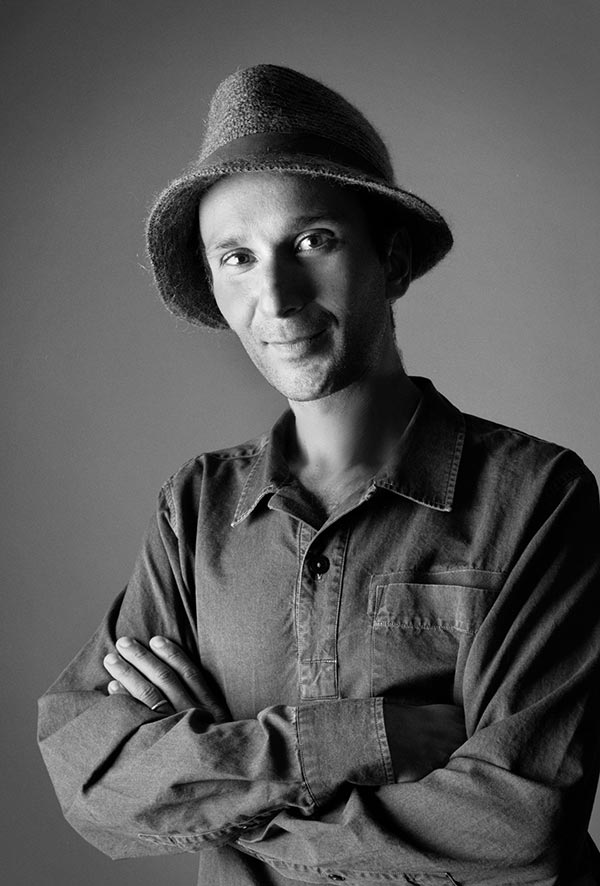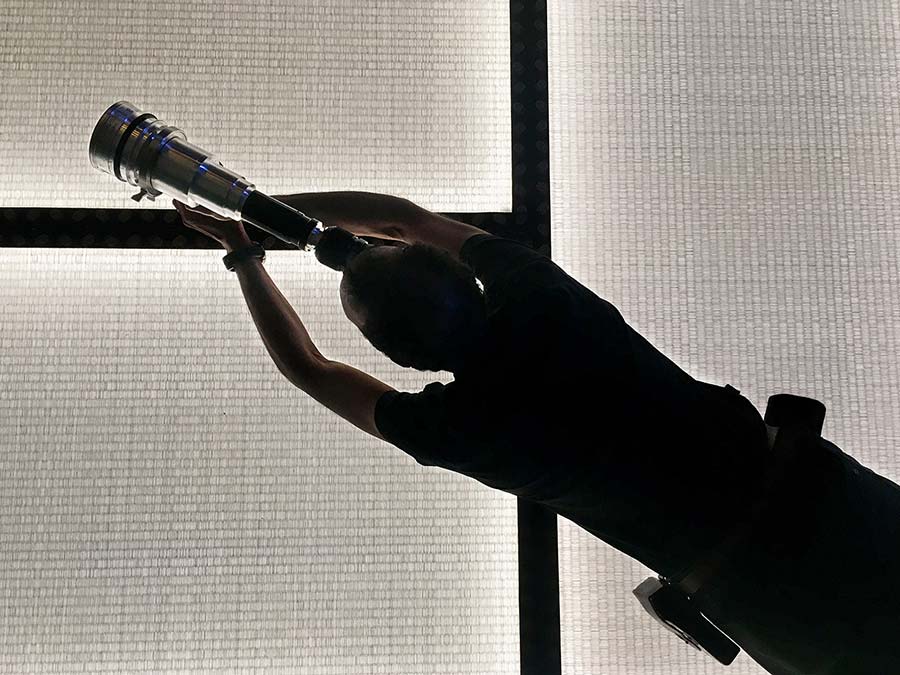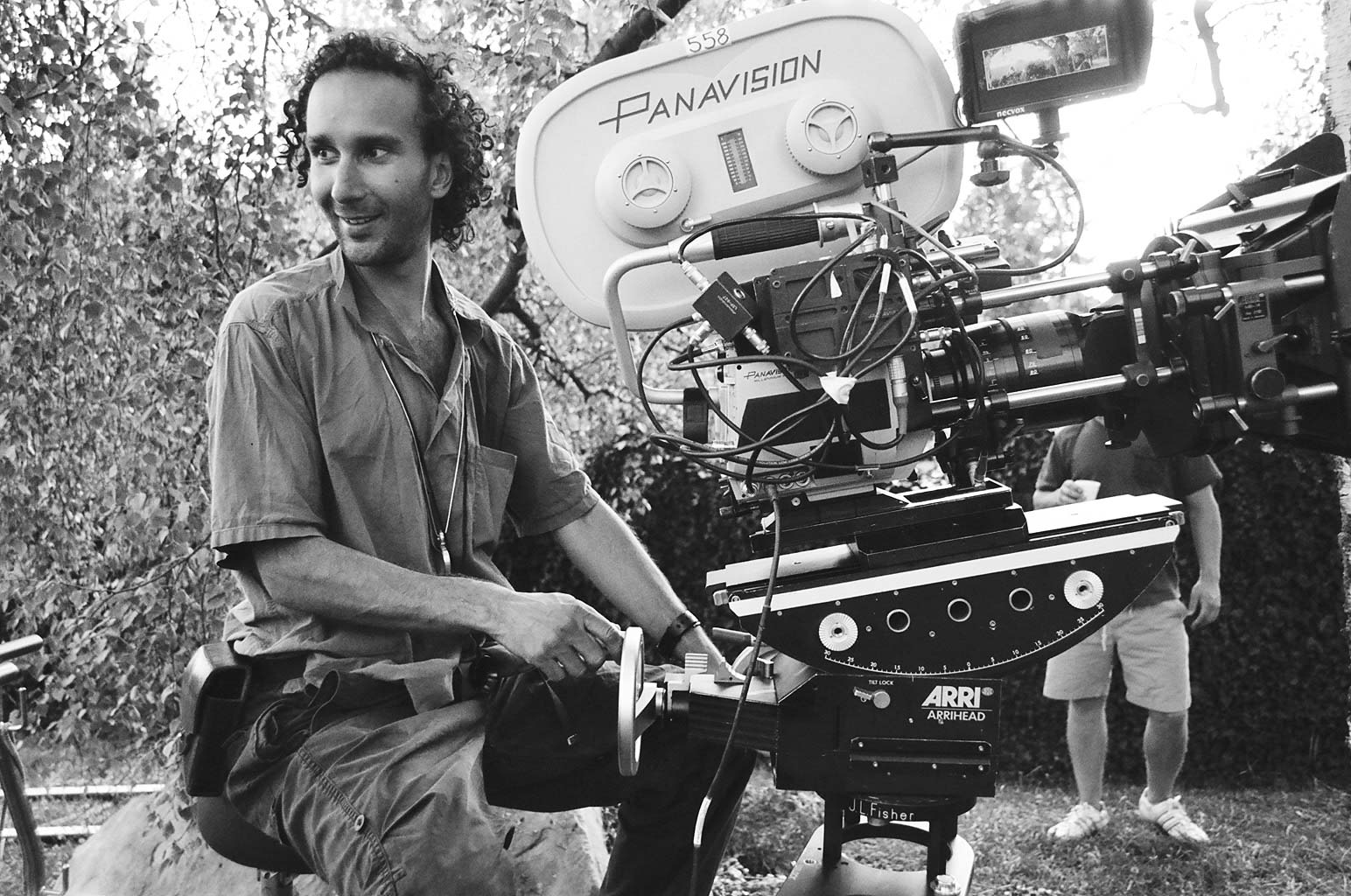
“I grew up experiencing two very different kinds of light. The Caribbean light is intense, powerful and high contrast. And on the other hand, there was the soft, silver-gray light of northern Europe. Much of my work exists in this tension between these two sensibilities.”
Jess Hall studied Film at Central St Martins College of Art, London and New York University. Prior to graduation he began an influential collaboration with the innovative and highly acclaimed contemporary choreographer William Forsythe. This produced the award-winning film Solo which featured in The Whitney Museum of American Art Biennale Exhibition 1997 NY.
Hall photographed his first feature film Stander in 2001 for the director Bronwyn Hughes. The film was celebrated for its authentic portrayal of 1970’s Apartheid South Africa. He went onto photograph the iconic British action-comedy Hot Fuzz written and directed by Edgar Wright before re-teaming with Wright on Don’t, a segment of Quentin Tarantino’s Grindhouse. Garth Jennings' Son of Rambo charmed audiences at The Sundance Film Festival.
In 2007 Hall received a Satellite Award Nomination for his cinematography on Brideshead Revisited. Taking his lighting approach from the Dutch masters he was credited for crafting a dark yet luminous visual palette which subtly reflected the themes of love, faith, family, and betrayal. Creation directed by John Amiel starring Paul Bettany and Jennifer Connelly was produced by Jeremy Thomas and made in direct collaboration with the Darwin family. Hall transcended classical traditions to create an intimate film of emotional strength and depth. In 2010 he was invited to become a member of The British Society of Cinematographers.
Demonstrating an ability to move effortlessly between genres Hall’s versatility as a cinematographer is evident in his diverse choice of projects through which he incorporates a multiplicity of cinematic styles. For example, the naturalistic palette and poetic minimal shot structure he employed so successfully on James Ponsoldt’s, The Spectacular Now (Winner Special Jury Prize at Sundance 2013) contrasts with his work with on Academy Award winning cinematographer Wally Pfister’s directorial debut Transcendence 2014

Transcendence was shot on 35mm anamorphic and finished photochemically at Fotokem in Los Angeles using a traditional film workflow. Meanwhile Hall fully embraced the digital format for his live action rendering of the anime classic Ghost in The Shell 2017. Ghost employed many innovative technical strategies combining 65mm large format digital cinematography, custom built lenses and the first 24 FPS Photogrammetry capture rig to be used on a live action feature film. Hall’s use of advanced LED lighting technology to achieve a precise rendering of the complex secondary Anime color palette has been widely documented and was honored in the reception of the HPA award for Best Color Grading (Feature Film Category)
Hall is a member of The Academy of Motion Picture Arts and Sciences where he has participated both practically producing images for brand development and conceptually as a representative on the Future of Film Working Group and the Cinematographers Executive Committee. In 2019 Hall accepted an invitation to join The American Society of Cinematographers. He continues to shoot award winning commercials including multiple Cannes Gold Lion award winners, a Silver D&AD pencil for cinematography, in 2020 he received the AICP award for Best Cinematography on Smirnoff Infamous since 1864. The project also saw Hall’s work receive another award for Best Color Grading cementing his reputation as an artist who has dexterously navigated the color science required to produce resonant images of color depth in the digital format.
In 2020 Hall helmed Marvel’s first streaming content for Disney Plus shooting all 9 episodes of WandaVision. Directed by Matt Shakman, WandaVision was nominated for 23 Emmy Awards, multiple Golden Globes and received the AICP Award for Best Color Grading (Narrative Series Category). Hall continued his deep exploration of customized optics on Stephen Williams' Fox Searchlight feature, Chevalier. Collaborating with Dan Sasaki at Panavision to develop Ultra-High-Speed Large Format lenses, the form of this film was both immersive and progressive embracing complex camera movement with extreme low light cinematography (read article – American Cinematographer). In 2022 Hall was honored to be invited to lens a second iconic Japanese IP as he reteamed with Shakman to shoot EP.1 and 2 of Monarch, produced by Legendary/Apple.
